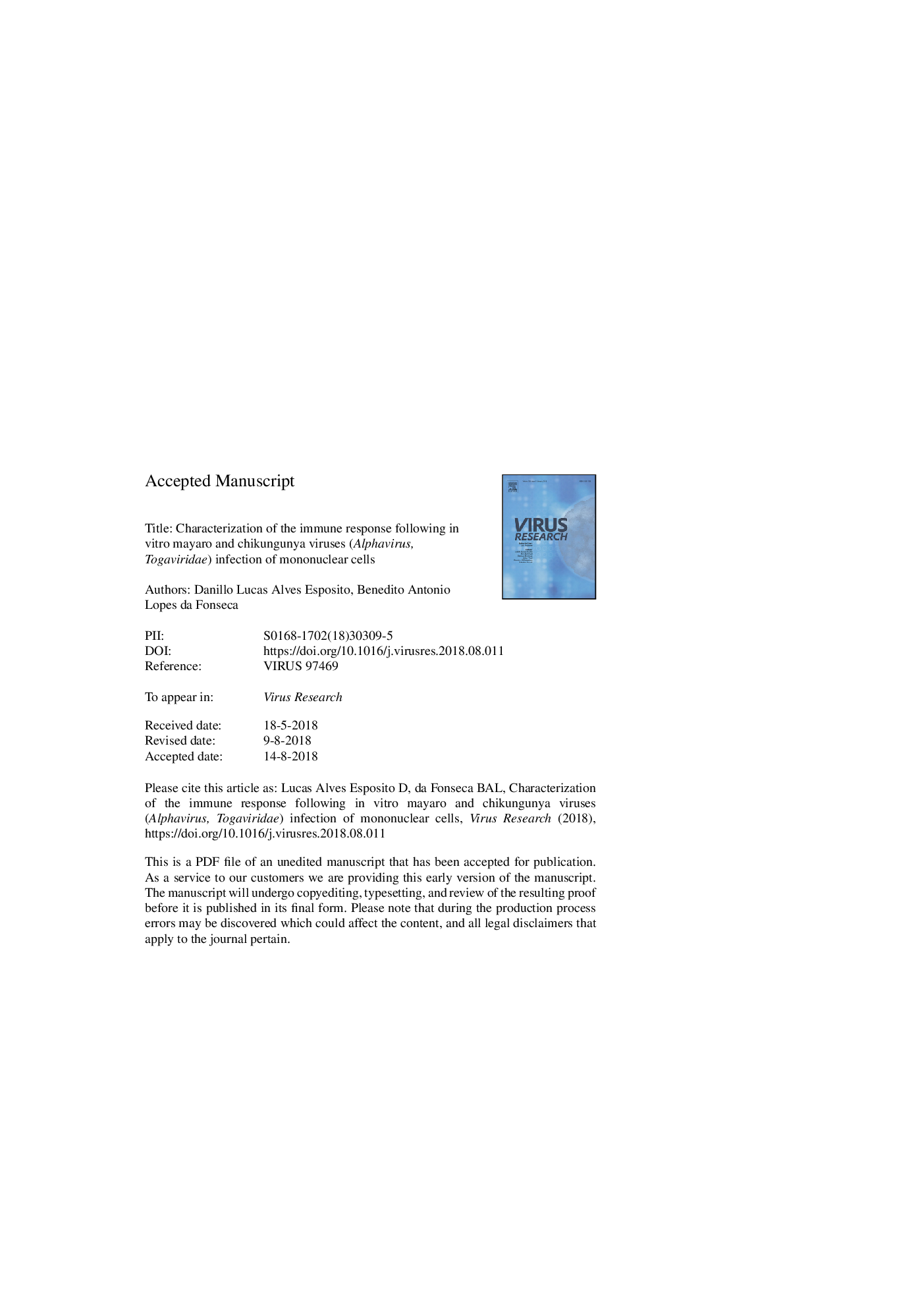| Article ID | Journal | Published Year | Pages | File Type |
|---|---|---|---|---|
| 10031815 | Virus Research | 2018 | 27 Pages |
Abstract
Two Alphaviruses stand out for their clinical importance in Brazil: chikungunya (CHIKV) and mayaro (MAYV) viruses. Few studies exist on the mechanisms of the immune response after infection by these viruses and neither a treatment nor a vaccine for these pathogens are available. Although their infection does not have a high mortality rate, they can lead to a joint involvement that can persist for months. The aims of this work were the study of the mechanisms of antiviral immune response following in vitro (U937 cells) infection with these viruses; to investigate the characteristics of the infection by these viruses; and to determine possible molecular targets that could serve as antiviral therapies against these pathogens. Several genes were modulated after infection by these viruses, and the three antiviral detection and response pathways were activated (Toll-like, RIG-I and NOD-like). Eotaxin and IL-6 were induced in all experiments. The cellular immune response profile found for each virus was different, with CHIKV activating primarily an inflammatory response (Th1 and Th17) and MAYV inducing a regulatory/suppressive response, an important feature to contain the inflammation resulting from infection. The data acquired by this study could provide an explanation why CHIKV infections, due to activation of the inflammatory response, are more clinically relevant than MAYV infections, which generates mostly an anti-inflammatory response after infection.
Related Topics
Life Sciences
Immunology and Microbiology
Virology
Authors
Esposito Danillo Lucas Alves, Fonseca Benedito Antonio Lopes da,
